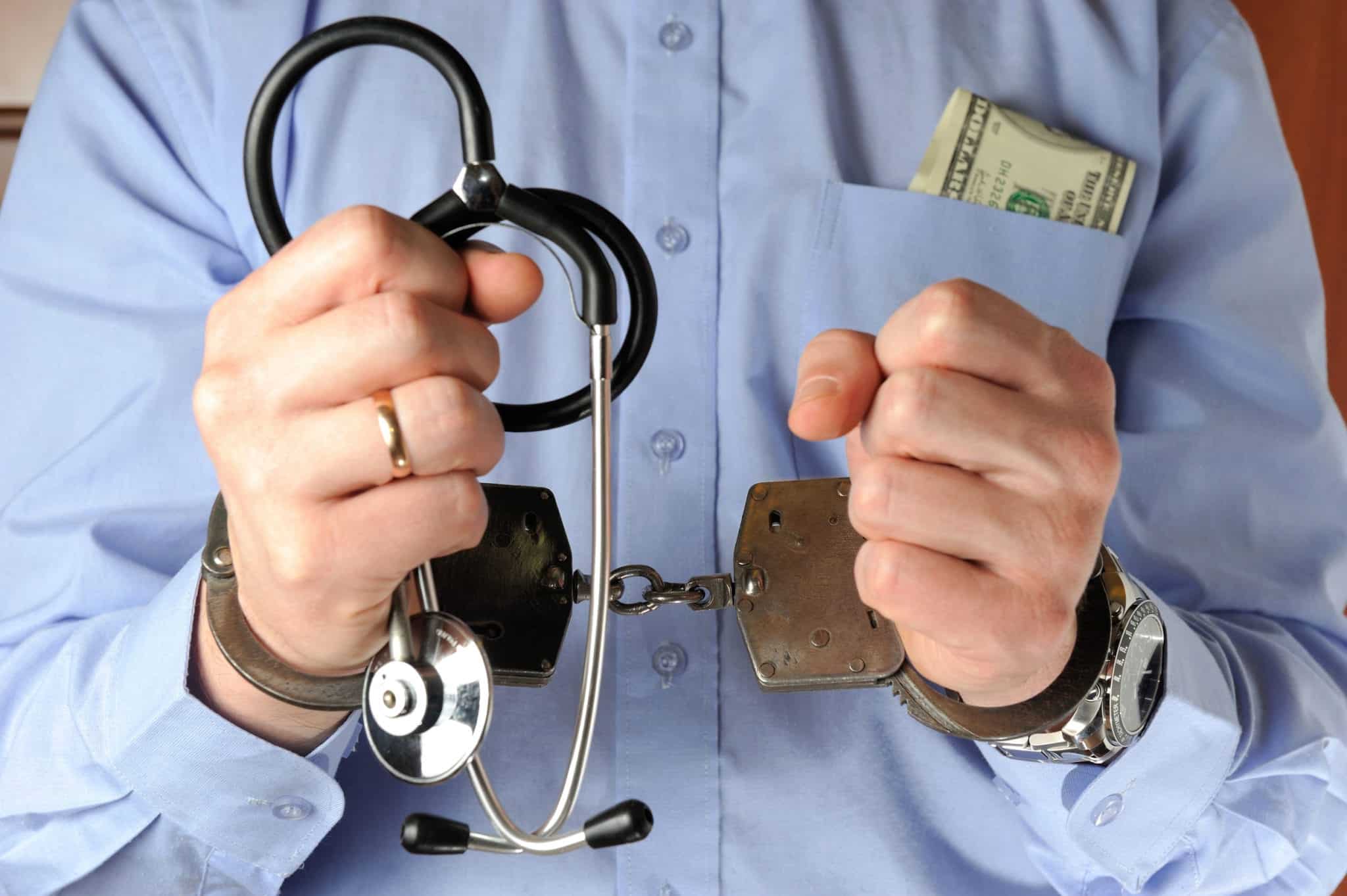The cost of healthcare remains on a permanent upward trend. Pharmaceutical companies know people need their products, so they raise their prices at will.
Because of the volume of money in the health care industry, opportunities for fraud are rampant. That said, the federal Department of Justice (DOJ) understands this.
In recent years, the DOJ has been cracking down on a variety of healthcare frauds. In fact, in January of this year, one Texas doctor was convicted for eight separate healthcare fraud charges.
False Diagnoses Garner $325 Million
The Texas practitioner was a part of a fraud scheme involving dozens of patients and more than $325 million dollars. This doctor played a pivotal part in the fraud.
The overall scheme was to force patients and their insurance companies to pay for unnecessary treatments. These payments went to the doctor himself.
The doctor allegedly falsely diagnosed patients with rheumatoid arthritis – a chronic, painful, life-long disease. He would then prescribe patients with treatments, such as infusions of chemo drug, for a disease that they didn’t have.
The treatments the patients underwent were specifically the expensive and repetitive kind. This guaranteed the most possible fraudulent income for both the doctor and his partners.
This is an extreme example of medical fraud, but it’s also an example of what patients worry about. Suspicious patients may be more inclined to sue doctors over their treatment, even if it’s completely legitimate.
Understanding how healthcare fraud is defined by law can help you defend yourself from and avoid these charges.
How Texas Healthcare Fraud Gets Charged
There are a number of crimes all lumped under the title “healthcare fraud.” In general, it covers any crime that involves making money in an illegitimate way via the healthcare system. This includes things like billing fraud, illegal referrals, and bribes.
Texas’ False Claims Act
The Texas doctor committed fraud under the False Claims Act. Specifically, he made false statements that were then used to make fraudulent claims.
The false diagnoses led to fraudulent claims, and in the end, the doctor reportedly took home $50 million that shouldn’t have been paid. The False Claims Act states that anyone guilty of his conduct is subject to a $10,000 fine per instance, plus three times the defrauded amount.
Texas Statute on Criminal Health Care Fraud
Prosecutors, however, chose to bring up charges against the physician under the Criminal Health Care Fraud Statute for which he was convicted. Any attempt to defraud a health care benefit program of services or payment is considered a criminal violation.
These charges are almost always considered felonies. If no one was seriously physically harmed as a result of the fraud, the crime is punishable by up to 10 years in prison.
When serious bodily harm does occur, then sentencing increases to 20 years in prison. If someone dies, then the fraudster can face a life sentence.
The Federal Anti-Kickback Statute
Other healthcare fraud includes receiving kickbacks or giving referrals for monetary gain. Kickbacks are defined as remuneration intended to generate business for a healthcare company.
That can include percentages of sales being sent to the referrer, hotel stays, free rent, or other things of value.
The practice is banned by the federal Anti-Kickback Statute, which makes kickbacks a criminal offense. Receiving kickbacks is a felony punishable by prison sentences up to 5 years and fines of $25,000 per violation.
How to Avoid Committing Healthcare Fraud in Texas
Healthcare fraud is easy to avoid. By following legal guidelines, it’s simple to charge correctly for your services. Keep good records and understand the legal system so you can avoid committing or being charged with committing healthcare fraud. Here are four quick and easy tips for avoiding these charges.
- Tip 1: Only Bill for Services You’ve Actually Completed — Billing for claims that did not take place is blatant fraud. This is why you should never bill in advance, so you avoid having the service canceled and accidentally committing fraud.
- Tip 2: Don’t Inflate Your Services — If there are two similar services, but one is more expensive, you should only bill for the one you performed. Performing one service but billing another is considered fraud.
- Tip 3: Perform Only Medically Necessary Services — Only perform services that are medically necessary. Performing unnecessary services results in unnecessary payments and is considered fraud.
- Tip 4: Never Falsify Records — Never falsify records, intentionally misdiagnose, or misrepresent treatment in order to increase potential billing. That is blatant healthcare fraud and might result in criminal charges.
Healthcare fraud is a huge problem in the modern medical industry. Patients and the judicial system are rightfully wary of potentially fraudulent claims. Maintaining good records, staying accurate with your billing, and understanding your legal obligations will help you stay on the right side of the law.
If you do run into legal trouble, don’t hesitate to find yourself an experienced attorney.
Healthcare fraud is a serious charge, and you deserve to maintain your good standing





